- Mercedes-Benz India
- Mercedes-Benz EQS SUV 580 4MATIC
- Mercedes-Benz
- BEVs
- Luxury Cars
- Luxury SUVs
- Electric Vehicles
Need To Improve Tyre Service Personnel Safety
- By ADAM GOSLING
- October 13, 2021
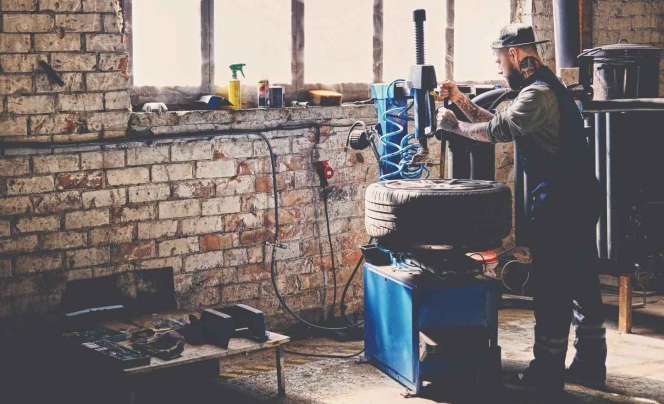
I have been puzzled for more years than I care to consider as to why tyres, and so the personnel that service our tyres, are treated so poorly. Before replying, have a wander around a car park at the supermarket, or at the truck stop, and look at the condition of the tyres. My team’s fathers have taught their children to look at tyres and so they have become ‘tyre aware’. The children report to me with what they observe of the tyres on vehicles adjacent to them when stopped at traffic lights or in traffic, and they are most concerned! They well understand that their primary safety starts with tyres that are in good condition and appropriately inflated. Thankfully, with TPMS, pressure maintenance has been semi-automated, if the driver takes any notice of the notification on the dash.
So, the personnel who ‘repair’ our tyres, the people at the local tyre shop, or the heavy vehicle service centre or maybe even on a mine site manoeuvring a 4-metre giant tyre onto a wheel or rim, with a combined mass of 5 tonnes to be fitted to a giant haul truck providing a GVM of 600 tonnes, have one thing in common – they are in the firing line if a catastrophic tyre failure occurs during service.

A quick search on the internet will bring a plethora of such events recorded. Why is it serious? A medium size 22.5-inch truck tyre has a burst potential of more than 12 tonnes – a larger tyre of course has a higher potential. There is a serious differentiation that needs to be explained here: a tyre burst is the instantaneous (or near to) release of contained inflation pressure. The resultant force is directly related to the inflation pressure. A tyre explosion is the result of combustion within the tyre’s air chamber. The resultant forces may be magnitudes higher than the initial inflation pressure.
A burst has an effect on the human body not unlike that of a military hand grenade; agreed there is no thermal outcome in a tyre burst and no chemical effects, but the air blast is somewhat equivalent. We expect our tyre service personnel to work on equipment of unknown history or unknown service life on pavements of greatly varying quality without question. Experience is what differentiates older tyre service personnel from a new starter. Sure there are training facilities as well as the school of hard knocks. I do say to trainees, “do not use your first chance with tyres, you may not get another.” Then I show some tyre burst videos and the understanding is set in place.
The quality of components for a pressure vessel – as a tyre assembly actually is – is most critical. The tyre itself must be carefully inspected and be sound and free of defects as far as an external examination can determine. The wheel or rim components, particularly lockrings, MUST be in sound condition and must be compatible with the wheel/rim base they are being mounted onto. If the tyre service personnel are not 100 percent certain of compatibility, then it’s a no fit event.
A tyre being inflated after mounting is worthy of a formal risk assessment. A “what if” process, questions of what if the tyre failed during inflation, what if the wheel/rim failed or in the case of a multi piece assembly disassembled, who is in the firing line in such a case? Yes, inflation cages are a mandate (or should be) in professional tyre shops. The simple hoop style cage will prevent large pieces being ejected from a catastrophic failure but still permits the air blast to escape, potentially damaging any human body within 2–3 metres.
The damage an air blast impacts onto a human body may not be visible from the outside. Such an air blast may impart serious injury to soft internal organs such as lungs, kidneys, digestive systems and may even result in embolisms that can traverse the blood returns to the brain or heart where injury is a not if but how bad.
If you are unfortunate enough to be involved in or attend a catastrophic tyre failure, then have the service personnel attended by an emergency physician with continued observation for 24 hours. The damage to the body may not be immediately apparent.
 So why do we permit untrained (read lacking confirmed competence) personnel to work in such a high risk environment? It circles back to why people purchase budget priced tyres; they just don’t see any value in paying for quality. A quick story: a 4WD pulls into the local tyre shop, the driver exclaims he wants the best off-road tyres in the shop and then explains, “Oh, my wife will be with the family car next week, just a set of cheapies on hers will be fine.” There is total confusion in the value proposition here. His toy has to have the best, but the family vehicle can have cut or rock bottom price items. HELLO??? The same phenomenon happens with tyre service work. A smart transport operator well understands that the cost of operating their tyres is a lot more than just the tyre’s purchase price. The tyre bay that supports the operation and keeps it rolling is a key component of the operation. So why not invest in trained and skilled personnel? I say to these owners, a good tyre service personnel knows all their tyres by their first names. Just as the transport operator can tell you about the habits of different vehicles, a competent tyre person can identify aspects of tyre performance most would not even think about; no, most don’t even think about their tyres, let alone care!
So why do we permit untrained (read lacking confirmed competence) personnel to work in such a high risk environment? It circles back to why people purchase budget priced tyres; they just don’t see any value in paying for quality. A quick story: a 4WD pulls into the local tyre shop, the driver exclaims he wants the best off-road tyres in the shop and then explains, “Oh, my wife will be with the family car next week, just a set of cheapies on hers will be fine.” There is total confusion in the value proposition here. His toy has to have the best, but the family vehicle can have cut or rock bottom price items. HELLO??? The same phenomenon happens with tyre service work. A smart transport operator well understands that the cost of operating their tyres is a lot more than just the tyre’s purchase price. The tyre bay that supports the operation and keeps it rolling is a key component of the operation. So why not invest in trained and skilled personnel? I say to these owners, a good tyre service personnel knows all their tyres by their first names. Just as the transport operator can tell you about the habits of different vehicles, a competent tyre person can identify aspects of tyre performance most would not even think about; no, most don’t even think about their tyres, let alone care!
A well-mounted tyre, i.e. one that has been properly mounted onto the wheel or rim base so that it is concentric with the base, will balance up well, rotate smoothly without continually hammering the suspension on every revolution and as well provide fuel savings AND a safe ride for the driver and passengers. Add properly inflated and then maintained (of course, TPMS provides the easiest form of maintenance), and a tyre will perform at its best, which is what we demand when the vehicle is put into a corner, or required to brake heavily. Why would you not want the tyres to be able to perform at peak performance without fault?
Invest in your tyre service personnel, train them and educate them to not only understand the risks but observe the potentials too. Improved business with your clientele as well as enhanced safety for your work force will result. Remember, the TyreSafe 6M principle’s end result is to??? (If you don’t know, askus@tyresafe.com.au)
Competent and passionate tyre service people are worth their weight in gold. When you find one, you’ll understand what I mean.
Take care, stay safe, isolate as required and enjoy! (TT)
- INDIAN TYRE INDUSTRY
- TYRE RETREADING
- BIS STANDARDS
- IS 15704
- ECE R109
- CIRCULAR ECONOMY
- MSME CHALLENGES
- AUTOMOTIVE REGULATION
- CARBON REDUCTION
- FREIGHT
- LOGISTICS
Retreading Hangs In Balance Over Regulatory Conundrum
- By Gaurav Nandi
- December 30, 2025
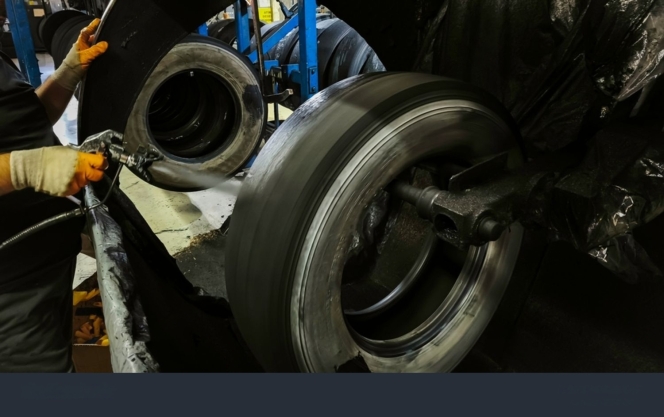
A population of over 1.4 billion people catapulting into the world’s third largest automobile market with four million trucks plying across a road network of 6.3 million kilometres supported by a USD 13.4 billion tyre market and a mining sector contributing around 2–2.5 percent of the country’s GDP demonstrate the strength of India’s automobile, freight and tyre sectors.
The story doesn’t end there as the Central Government adopts a strategic approach on reducing carbon emissions across these verticals, especially automobile and tyres, with targets such as the Net Zero Carbon Emissions by 2070, battery electric vehicles target by 2030, zero-emission truck corridors, Extended Producer Responsibility for the tyre sector; the list just goes on.
Amidst all such statistics and targets, a silent spectator remains the old and varied sector of tyre retreading. In a recent news story reported by Tyre Trends, the Indian Tyre Technical Advisory Committee (ITTAC) had made a proposal to Tyre Retreading Education Association (TREA) for mandating certain standards that will improve the quality of retreads. ITTAC has made recommendations to the BIS committee. TREA is part of the same committee. ITTAC and TREA are recommending different standards.
These standards included BIS retread standards, namely IS 15725, IS 15753, IS 15524 and IS 9168. The ITTAC had partially aligned Indian requirements with ECE R109, the European regulatory benchmark.
In a reply to the proposal, which was accessed by Tyre Trends, TREA urged the Indian Tyre Technical Advisory Committee to seek a deferment or non-applicability of BIS standard IS 15704:2018 for retreaded commercial vehicle tyres, warning that mandatory enforcement could cripple the sector.
In the letter, TREA argued that IS 15704:2018 is largely modelled on new tyre manufacturing norms and is technically unsuitable for retreading, which is a restoration and recycling process.
The standard mandates advanced laboratory tests such as spectrometer-based rubber analysis, endurance testing and compound uniformity checks, requirements that most retreading units, particularly small and medium enterprises, are not equipped to meet
The association highlighted that even large retreaders lack the infrastructure and skilled manpower needed for BIS-grade testing, while the sheer number of retreading units would make inspections and certifications operationally unmanageable for regulators.
TREA warned that compliance costs linked to machinery upgrades, audits and quality control could force 70–80 percent of units to shut down, leading to job losses, higher fleet operating costs and adverse environmental outcomes due to reduced recycling
Instead, TREA proposed that BIS prioritise retreading-specific standards such as IS 13531 and IS 15524, which focus on materials, process control, safety and quality consistency.
The body has also called for a phased transition roadmap, MSME support and industry training before any stricter norms are enforced, stressing that abrupt implementation would undermine the sector’s role in India’s circular economy.
The conundrum
India has a total of 36 administrative divisions comprising 28 states and 8 union territories. The tyre retreading sector has been continuously supporting circularity goals since the early 1970s across the world’s largest economy without getting mainstream recognition.
Even after five decades in service, the industry battles different bottlenecks including fragmentation, manpower shortage, tax pressures brought about by the recent GST revisions and now the implementation of such standards, just to name a few.
The sole practice that can simultaneously reduce carbon emissions from tyres and extend tyre life is assumed the nemesis of an ‘infamous and dangerous practice’ in some states of the country.
However, the industry has been drawing its techniques and quality parameters from the world’s oldest retreading economy, Europe.
“Big retreaders in India already have the necessary processes in place that conform to IS 15524 standards. However, as the standard is not yet mandated, we have voiced support for it because it is process-oriented and outlines how retreading should be carried out, including buffing and building procedures,” said TREA Chairman Karun Sanghi.
He added, “This standard focuses on how the work is done rather than imposing product-level testing that cannot be practically implemented. The current debate on IS 15704 stems from it being fundamentally incompatible. The standard includes requirements such as sidewall marking and destructive testing of retreaded tyres, which are impractical in a retreading environment where each tyre differs in brand, size, application and usage history,” he added.
Destructive testing, he argued, assumes uniform batch sizes. In retreading, where every casing is unique, testing even a single tyre would mean destroying finished products without yielding representative results. Applying such a framework would effectively require the destruction of every tyre in a batch, making compliance unviable.
“We have submitted our response to ITTAC and are awaiting feedback from the committee. We remain open to continued dialogue and will engage further once the committee responds to our submission,” said Sanghi.
According to him, a typical retreader processes about 300 tyres a month across multiple brands including MRF, JK Tyre, Apollo and Michelin and applications ranging from buses and trucks to mining vehicles. These casings vary widely in load cycles, operating conditions and duty patterns, often across several models from the same manufacturer.
The committee has cited European standard ECE R109, but Sanghi points to structural differences: “Europe is a global retreading hub where tyre manufacturers such as Michelin and Bridgestone dominate operations, collect their own tyres, retread them and return them to fleets, making batch-based destructive testing relevant. A similar model exists in US, where large tyre companies lead retreading and largely self-regulate without a single overarching standard. The Indian scenario is different, especially with a fragmented market.”
He stressed that the industry is not opposed to standards but to those that cannot be practically applied, warning that adopting European manufacturing-oriented norms without accounting for India’s market structure and operating realities would be counter-productive.
The debate is no longer about whether standards are needed but whether they are fit for purpose. Without accounting for India’s fragmented retreading ecosystem, enforcing impractical norms could dismantle a circular industry in the name of compliance.
TGL Season 2 Kicks Off With Hankook As Founding And Official Tire Partner
- By TT News
- December 29, 2025
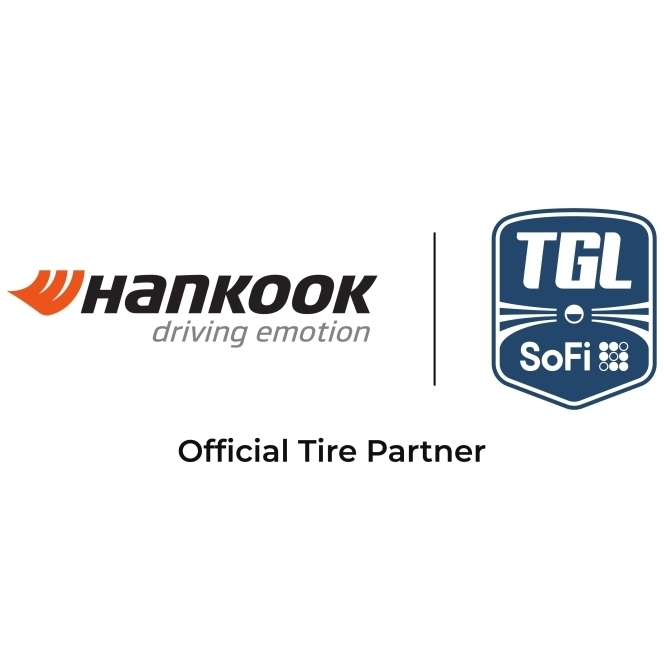
The second season of TGL Presented by SoFi, where Hankook Tire serves as the Founding and Official Tire Partner, commenced on 28 December 2025. This innovative league, a venture of TMRW Sports with backing from icons like Tiger Woods and Rory McIlroy, represents a strategic alignment for Hankook, uniting two entities driven by technological advancement. The partnership provides a global platform to reinforce Hankook's premium brand positioning across North America and worldwide through extensive visibility during broadcasts and at the state-of-the-art SoFi Center in Florida.
This unique venue embodies the league's fusion of sport and technology, featuring a massive simulator with a dedicated ScreenZone and a dynamic GreenZone. This area, equipped with a turntable and over 600 actuators, meticulously replicates real-world golf conditions indoors, creating an immersive arena experience. The competition itself is fast-paced and engaging, with teams of PGA TOUR players competing in Triples and Singles sessions over 15 holes. Innovative elements like the point-doubling ‘Hammer’, real-time strategy via ‘Hot Mic’ and a Shot Clock ensure a dynamic spectacle for fans.
The season opener presented a compelling narrative as a rematch of the inaugural finals, pitting the undefeated Atlanta Drive GC, featuring Justin Thomas and Patrick Cantlay, against a determined New York Golf Club squad led by Matt Fitzpatrick and Xander Schauffele. This match set the tone for an intensive season running through March, where six teams and 24 top golfers will compete. For Hankook, this partnership is more than signage; it is an active engagement with a global community, delivering a distinctive brand experience that bridges cutting-edge mobility and sport for enthusiasts everywhere.
Dunlop Secures CDP ‘A List’ Recognition For Climate Change And Water Security
- By TT News
- December 29, 2025
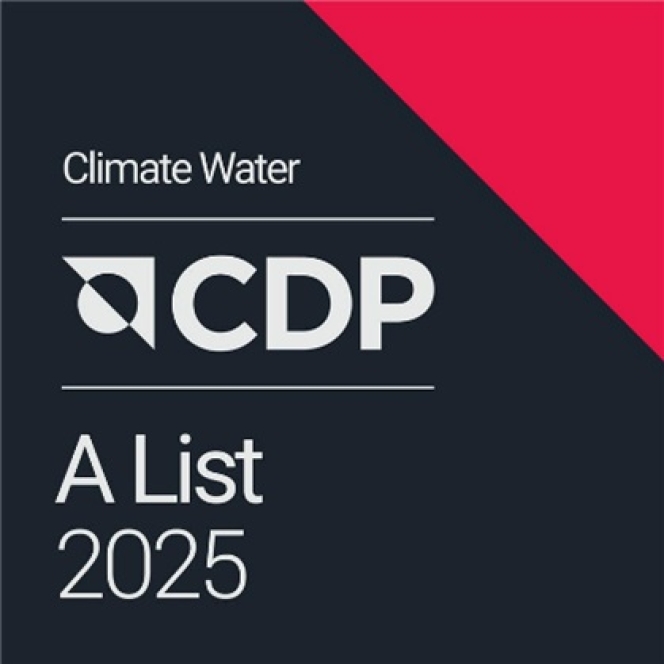
Dunlop (company name: Sumitomo Rubber Industries, Ltd.) has made its way to the annual A-List of CDP for climate change and water security. This premier designation, awarded for the first time to the company in the 2025 evaluation, recognises world-leading performance in transparency, risk management and environmental action. CDP’s annual assessment is a key benchmark for corporate sustainability across climate, water and forests.
This achievement stems from the Group’s integrated approach to material issues outlined in its corporate philosophy. It treats the interconnected challenges of climate change, biodiversity and the circular economy holistically, advancing concrete initiatives under its long-term ‘Driving Our Future’ sustainability policy.
On climate, the Group’s science-based emission reduction targets for 2030 are validated by the Science Based Targets initiative. Operational efforts include pioneering green hydrogen production at its Shirakawa Factory and developing tyres made entirely from sustainable materials by 2050. The company also works to reduce emissions across its supply chain, lowers tyre rolling resistance to improve vehicle fuel economy and extends product life through retreading.
For water security, the strategy is driven by localised risk assessments at global production sites. In seven facilities identified as high-risk, the goal is to achieve 100 percent wastewater recycling by 2050. Progress is already evident, with the company’s Thailand factory reaching full wastewater recycling in 2024.
These coordinated actions on multiple environmental fronts formed the basis for the Group’s simultaneous top-tier recognition in both critical categories from CDP.
Bridgestone Launches Co-Creation Initiative With Ethiopian Airlines Group
- By TT News
- December 29, 2025
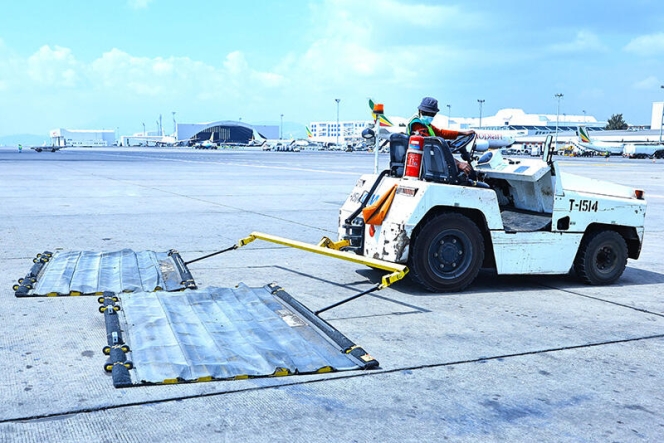
Bridgestone Corporation has initiated a novel co-creation programme in partnership with Ethiopian Airlines and Ethiopian Airports, focused on enhancing aviation safety at Addis Ababa Bole International Airport. This marks Bridgestone’s first sustained three-way collaboration with both an airline and an airport authority, targeting the reduction of Foreign Object Debris on runways and taxiways to support safer and more reliable aircraft operations.
The project was prompted by tyre-related incidents linked to debris at the airport, which previously risked disrupting flight schedules. Leveraging its specialised system for inspecting used airline tyres and analysing debris data, Bridgestone assessed conditions at the hub and proposed a tailored action plan. The company provided continuous support by analysing debris distribution patterns, developing visual hazard maps, advising on efficient collection methods and conducting training to raise awareness among airport personnel.
These sustained efforts have yielded significant results, substantially lowering the rate of tyre damage caused by runway debris compared to levels before the collaboration began. This reduction has supported improved on-time performance for Ethiopian Airlines while advancing overall operational safety. Additionally, the initiative has encouraged greater use of retreaded tyres, promoting economic efficiency and environmental sustainability within the airline’s operations.
Looking ahead, Bridgestone and Ethiopian Airlines Group plan to deepen their co-creation efforts, aiming to generate further value for the aviation sector and broader society through continued innovation and partnership.
Retta Melaku, Chief Operating Officer, Ethiopian Airlines, said, "At Ethiopian Airlines, the safety of our passengers, employees and aircraft is a priority. We are pleased to collaborate with Bridgestone to further strengthen our efforts in reducing FOD at Addis Ababa Bole International Airport and ensure safe operations at the hub airport."
Getaneh Adera, Managing Director, Ethiopian Airports, said, "We remain fully committed to upholding the highest safety standards at Bole International Airport at all times. This significant achievement in reducing FOD is the result of our strong commitment for safe operations and close collaboration with Bridgestone. Through our co-creation activities, we are pleased to have realised safer operations with enhanced productivity and economic value."
Jean-Philippe Minet, Managing Director, Bridgestone Aircraft Tire (Europe) S.A., said, "By combining the learnings and insights from Ethiopian Airlines' operational issues with our analysis technology and know-how, we have deepened our co-creation to propose customised solutions. We are delighted to contribute to safe aircraft operations with peace of mind and to improved operational productivity through the co-creation of efficient FOD reduction on airport surfaces. Through further expansion and evolution of this solution, we will amplify the value of our ‘Dan-Totsu Products’, trust with our customers and value of the data for creating new value."







Comments (0)
ADD COMMENT